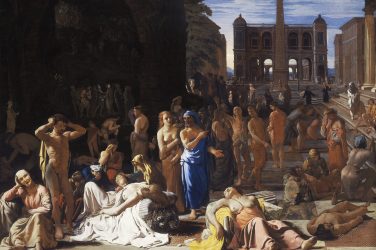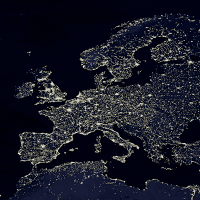If it seems that in the past years, things have been going off the rails, 2020 has served yet another punching surprise in the form of a worldwide pandemic. While the economic and human toll has been outright terrible, it has offered an opportunity for a somewhat sinisterly detached observation of the shifting political landscape. A reporting team at the only objective news channel – Ominous News 12 – brings you a collection of fascinating stories shedding light on pandemic politics.
‘It’s all very nuanced’ has been voted the smart person’s phrase of the year.
“I try my best to avoid making black and white statements as this is a sure path to fanaticism. Making a value judgement simply exposes your ignorance about the incredibly nuanced social world. Unless, we are talking about racism, then by all means, take a stance. Or maybe don’t. As a white person, I really don’t know anymore, maybe it’s better to step down and let the marginalized do the talking,” proudly exclaims a guilt-ridden liberal to the point of complete disorientation.
China’s social credit system suddenly appears very appealing in the midst of a pandemic, according to a confused liberal.
“I believe the state should use all its power to eradicate the virus so we could get on with our lives. If it means marking down unvaccinated people and barring them access to public services, so be it! We should also limit the freedom of assembly as the virus is likely to spread in protests. We are talking about a global emergency which requires extraordinary measures,” a devoted liberal unwittingly echoes the ideas of C. Schmitt.
Everyday folks, who are normally bent on controlling people’s sexual behavior and diluting education with pseudo-patriotic dogma, find themselves deeply wary of state power.
“After having read a convincing polemic about how our society resembles the one in 1984, I have become seriously concerned about individual rights. I don’t want the Big Brother telling me what to do. This is a first step towards tyranny,” says your uncle. Hearing this, architects of moral panics start to rejoice, as they discover that human rights discourse can be used to destroy the republic.
Attention craving intellectual, reinvents herself as a champion of the people.
Responding to accusations of being in bed with ultra-nationalists and outright deniers of basic facts, she exclaims: “People who disagree with you will always try to put you in one box or another. I am beyond right and left. I simply care to protect those who are being manipulated by the establishment”. Her colleague at the faculty of mental gymnastics is completely baffled by the transformation: “I just don’t understand where this is coming from. She always had a knack for authentic thinking. I guess even free thought has its limits”.
Recent protests against mandatory vaccination have caught many pundits by surprise.
A political scientist from the Institute of Empathetic Research underscores the psychological sources of public unrest: “These protests are less about concrete policy issues and more about pent-up feelings of anger, loss, and general disorientation in an increasingly complex and uncertain world. People simply want to be hugged”. Taking these wise words quite literally, a local-yet-still-hopeful politician decides to talk to some of the protesters but ends up being escorted by the police, as he gets literally spat on and shouted at by an angry mob.
A chief economist in denial is rather thrown off by the comment.
“Usually, we see a very high correlation between the level of economic well-being, education and trust in the system. These people have a university degree and enough money to go on vacation to Tenerife twice a year. What else do they want? 50 years ago, people stood in line to get a loaf of bread, yet they did not protest – they were simply content with what they have.”
Cover photo: Filip Michevski on Unsplash











Show Comments
Comments are closed.